Defiant Muses
Delphine Seyrig and the Feminist Video Collectives of 1970s and 1980s France
07 Apr - 04 Sep 2022
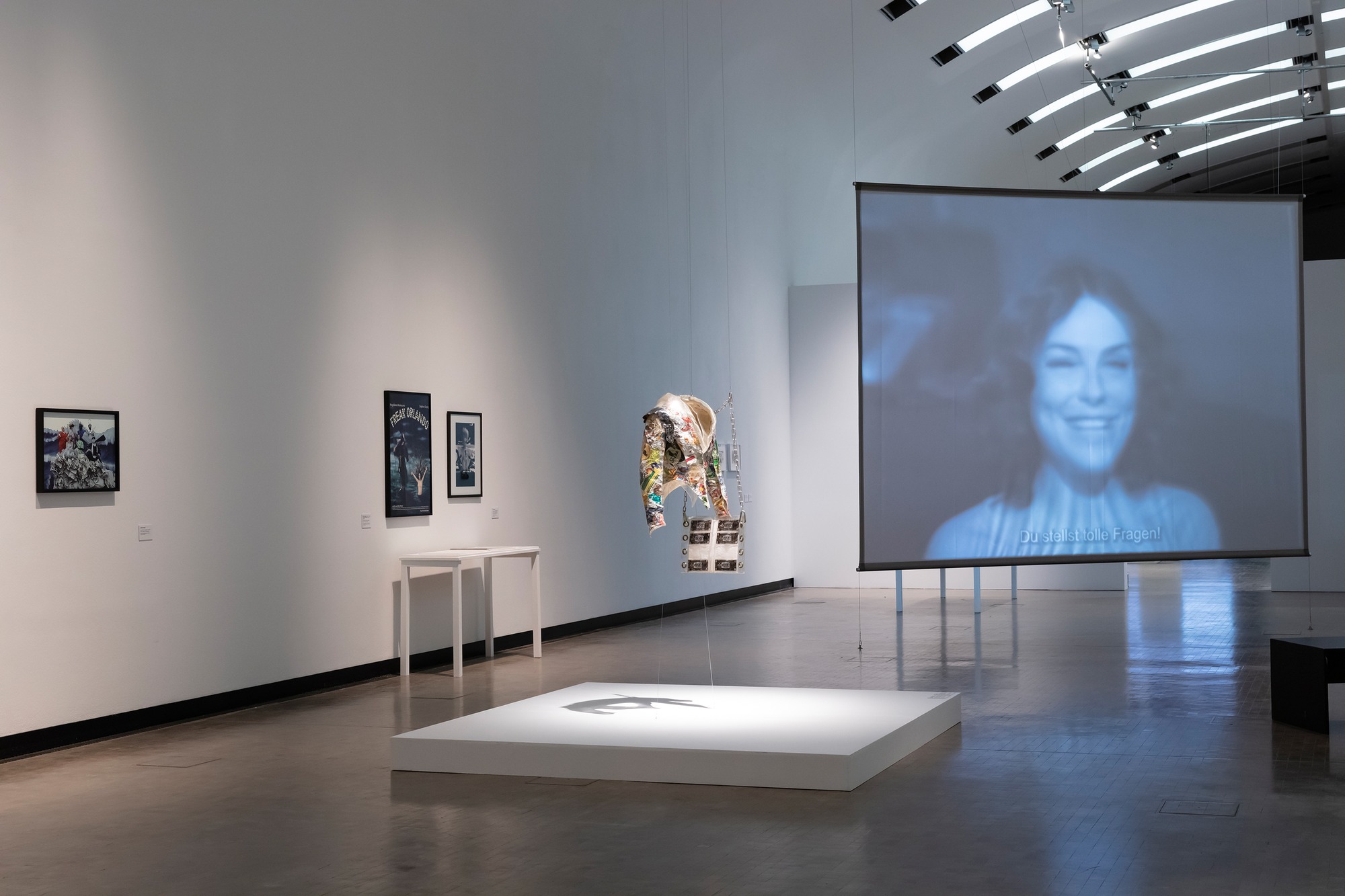
Installation view: Defiant Muses. Delphine Seyrig and the Feminist Video Collectives of 1970s and 1980s France, Kunsthalle Wien 2022, photo: Markus Wörgötter
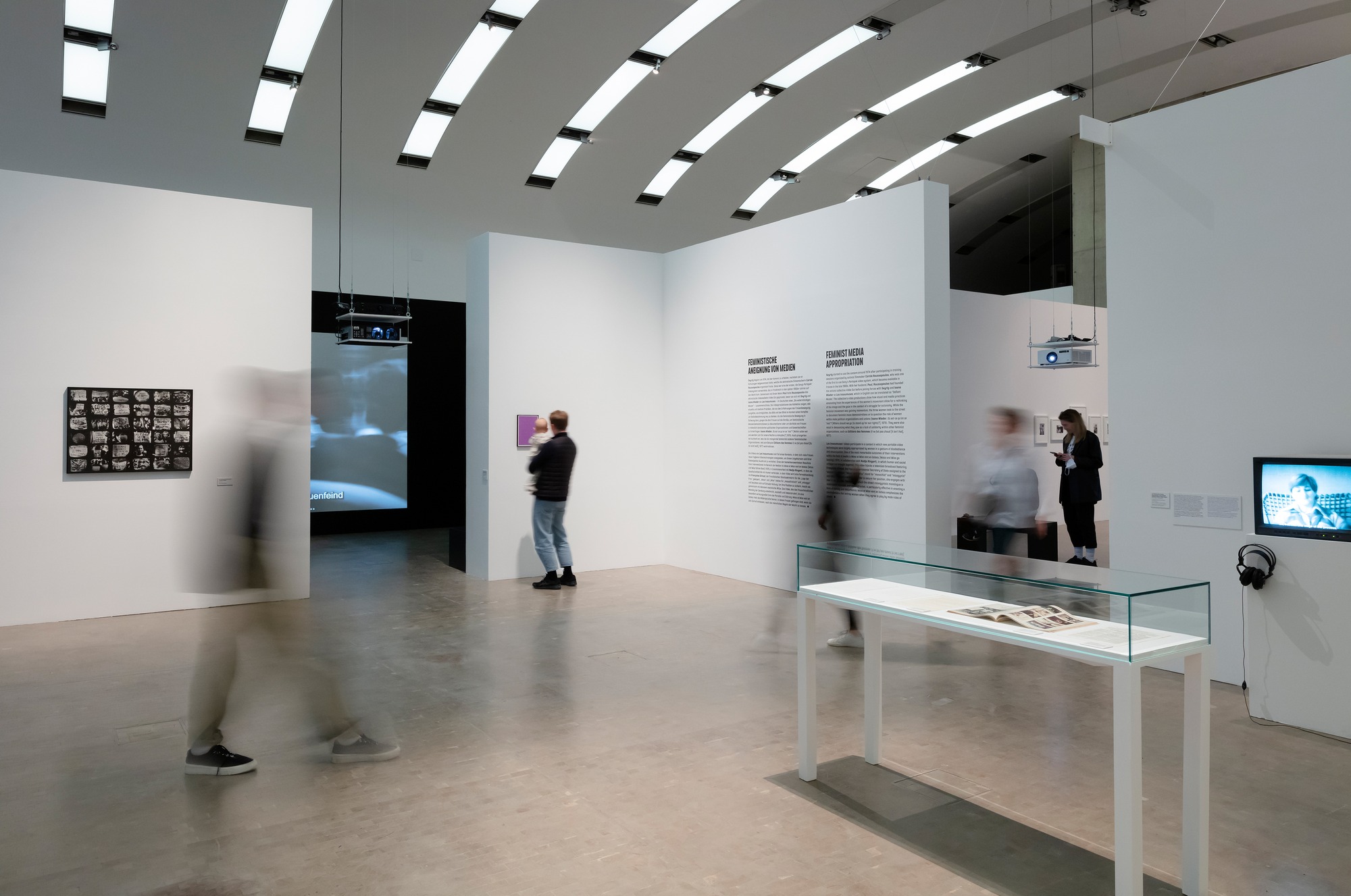
Installation view: Defiant Muses. Delphine Seyrig and the Feminist Video Collectives of 1970s and 1980s France, Kunsthalle Wien 2022, photo: Markus Wörgötter
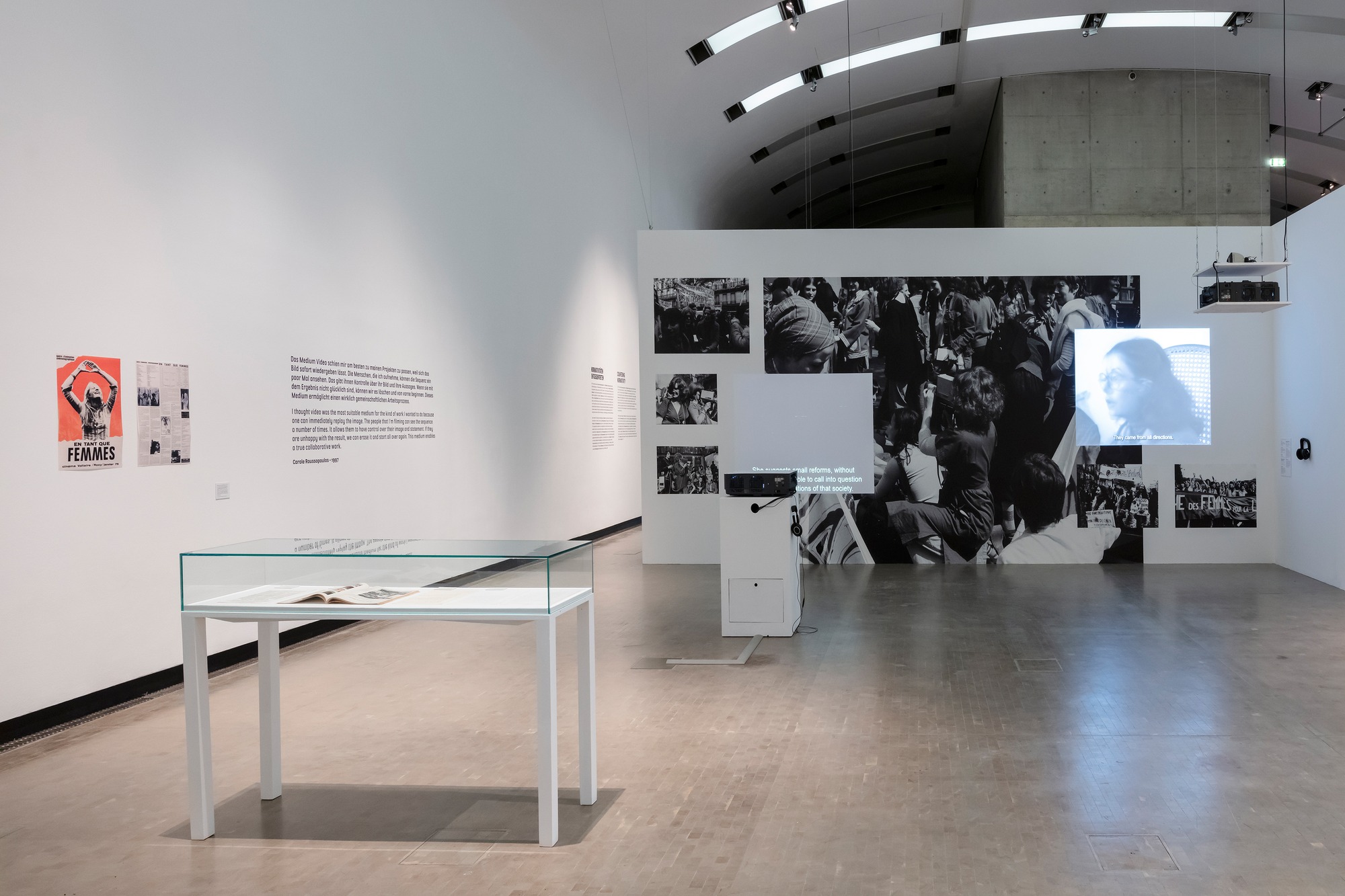
Installation view: Defiant Muses. Delphine Seyrig and the Feminist Video Collectives of 1970s and 1980s France, Kunsthalle Wien 2022, photo: Markus Wörgötter
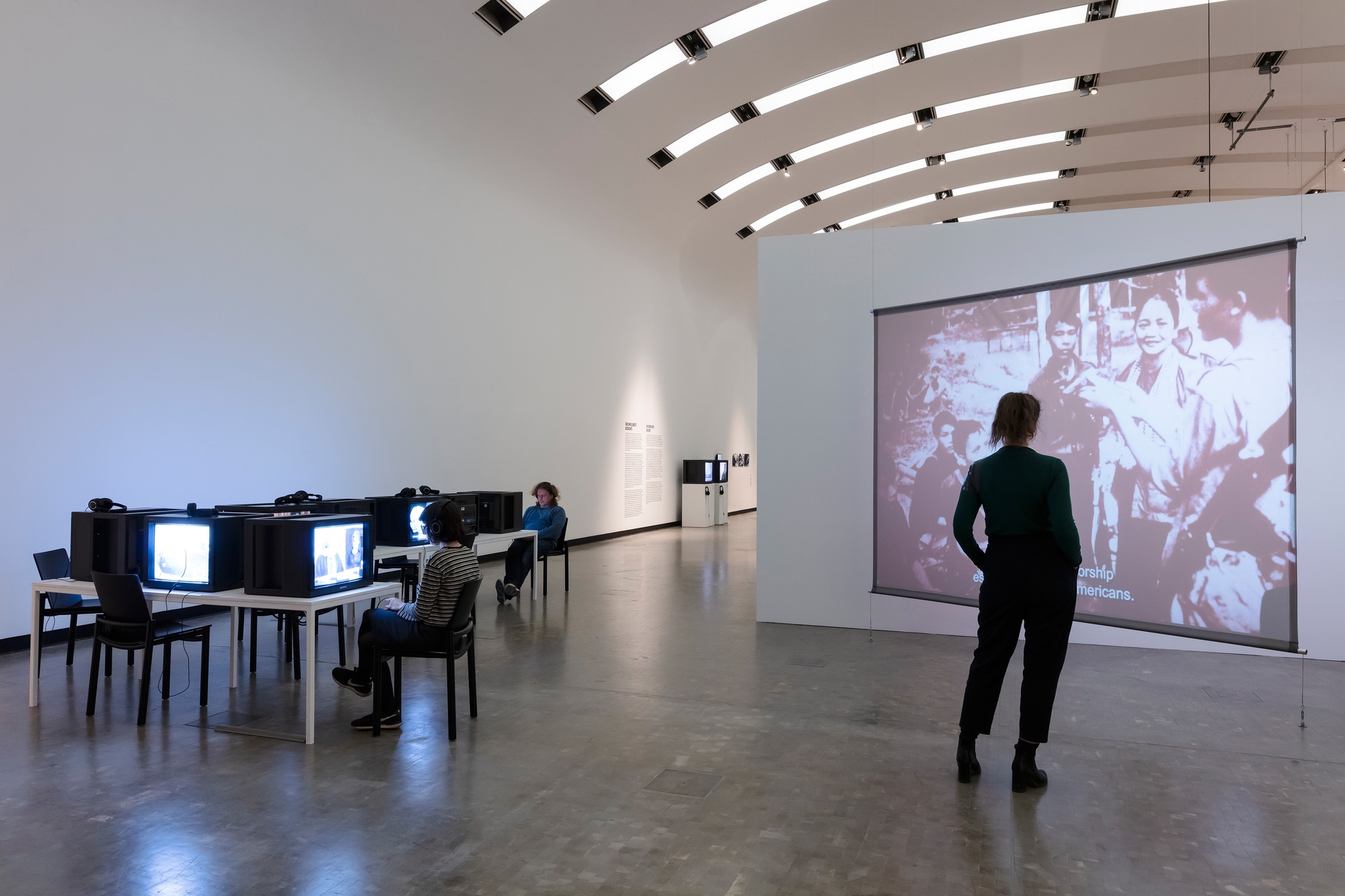
Installation view: Defiant Muses. Delphine Seyrig and the Feminist Video Collectives of 1970s and 1980s France, Kunsthalle Wien 2022, photo: Markus Wörgötter
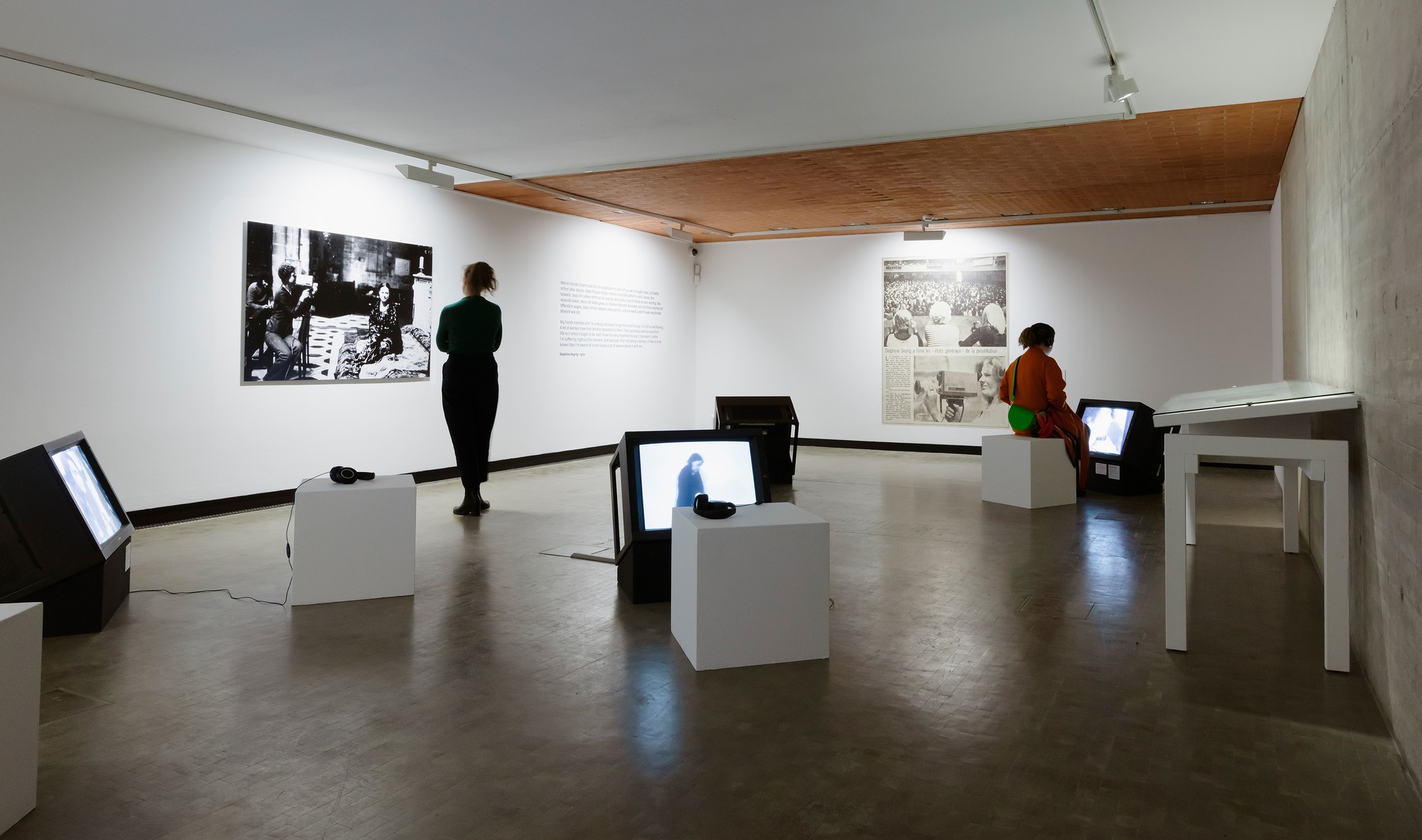
Installation view: Defiant Muses. Delphine Seyrig and the Feminist Video Collectives of 1970s and 1980s France, Kunsthalle Wien 2022, photo: Markus Wörgötter
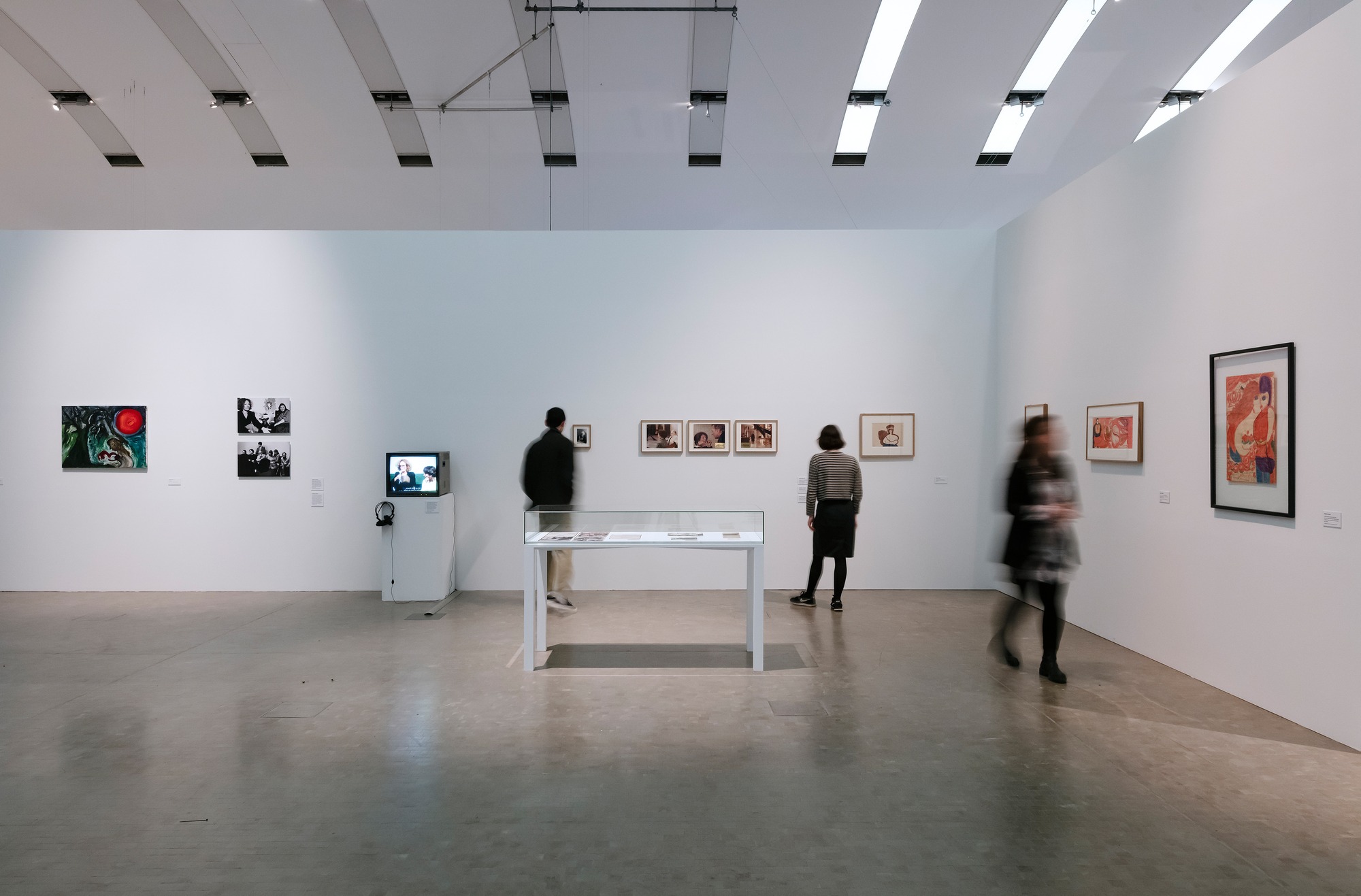
Installation view: Defiant Muses. Delphine Seyrig and the Feminist Video Collectives of 1970s and 1980s France, Kunsthalle Wien 2022, photo: Markus Wörgötter
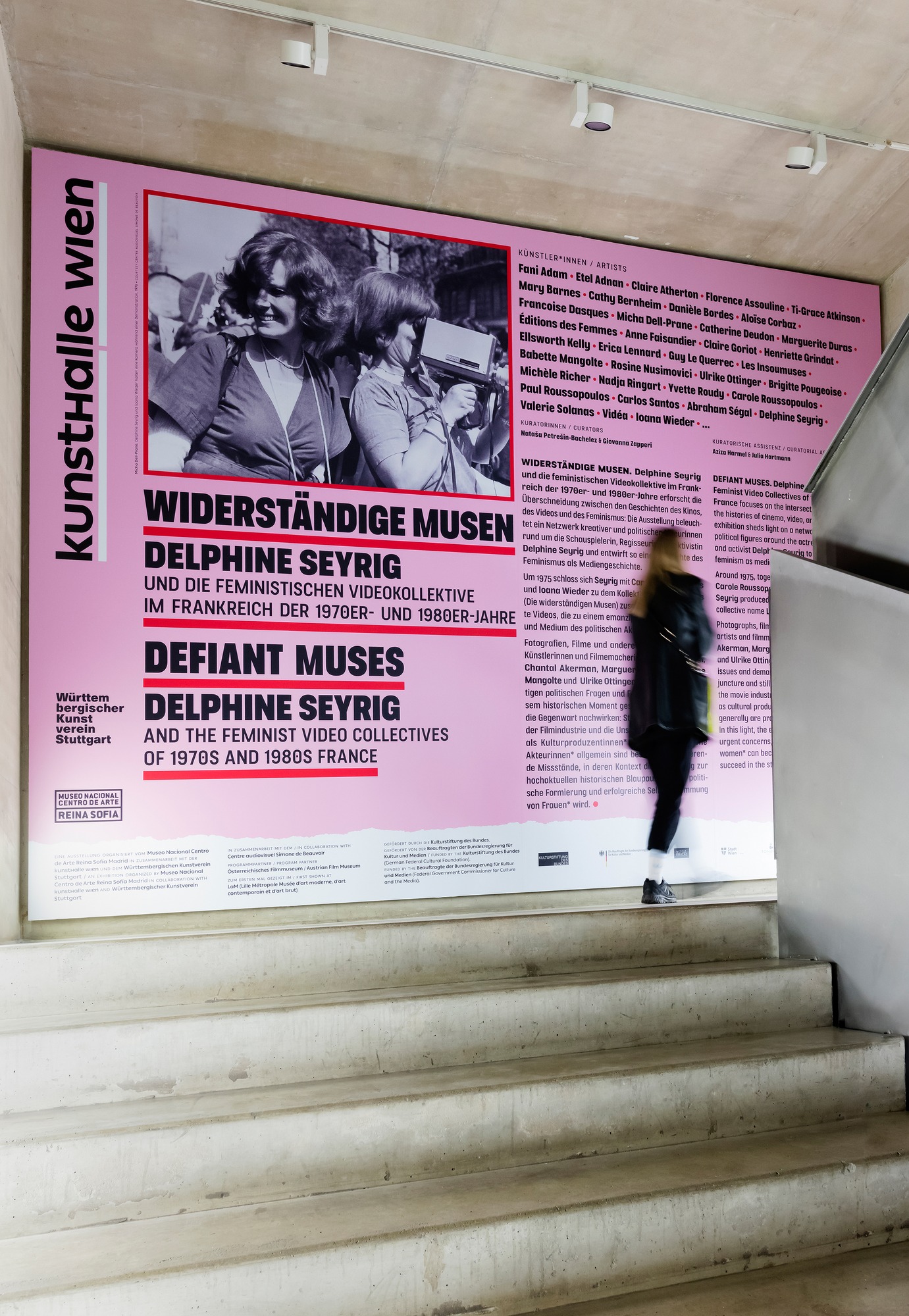
Installation view: Defiant Muses. Delphine Seyrig and the Feminist Video Collectives of 1970s and 1980s France, Kunsthalle Wien 2022, photo: Markus Wörgötter
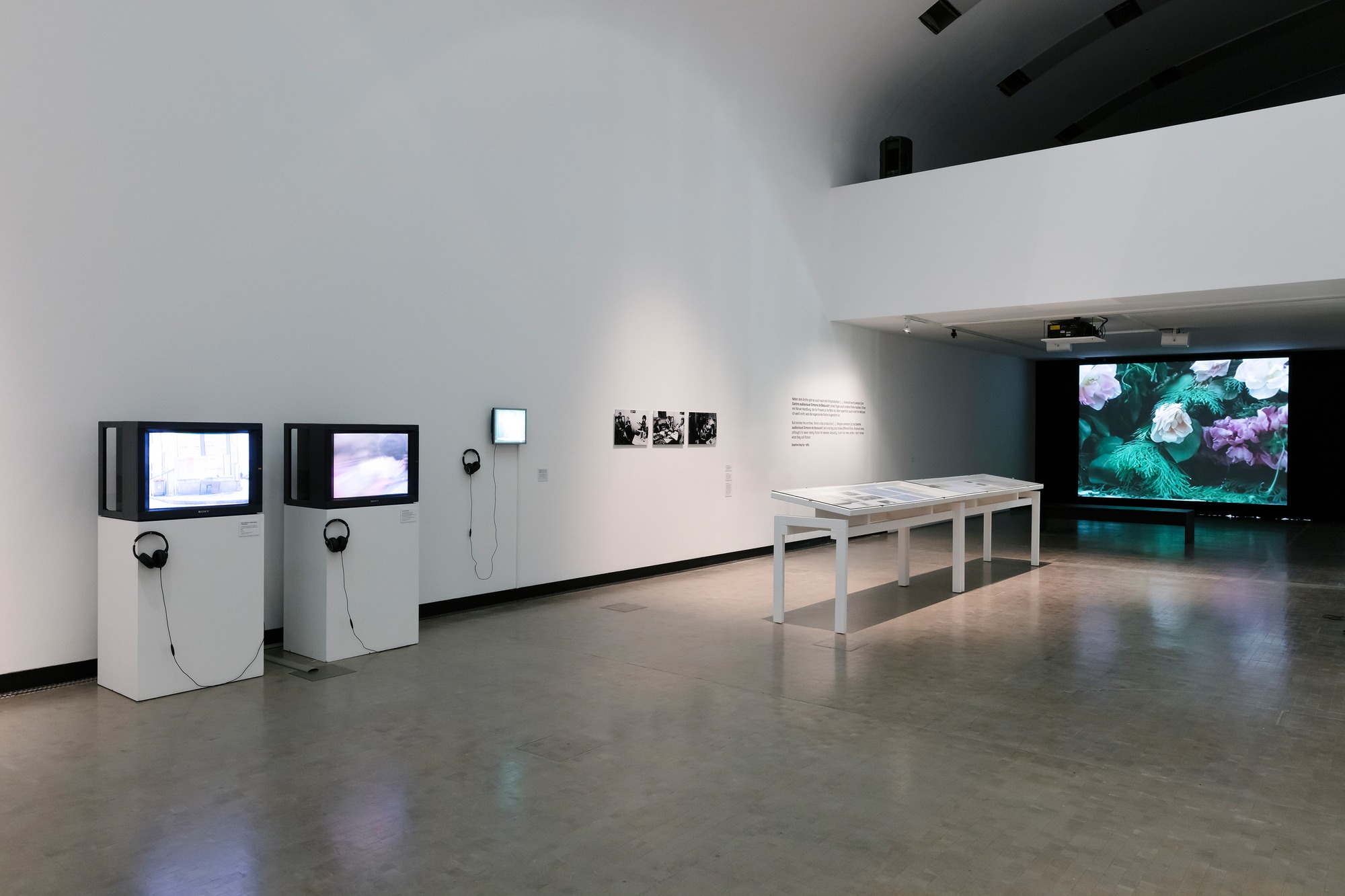
Installation view: Defiant Muses. Delphine Seyrig and the Feminist Video Collectives of 1970s and 1980s France, Kunsthalle Wien 2022, photo: Markus Wörgötter
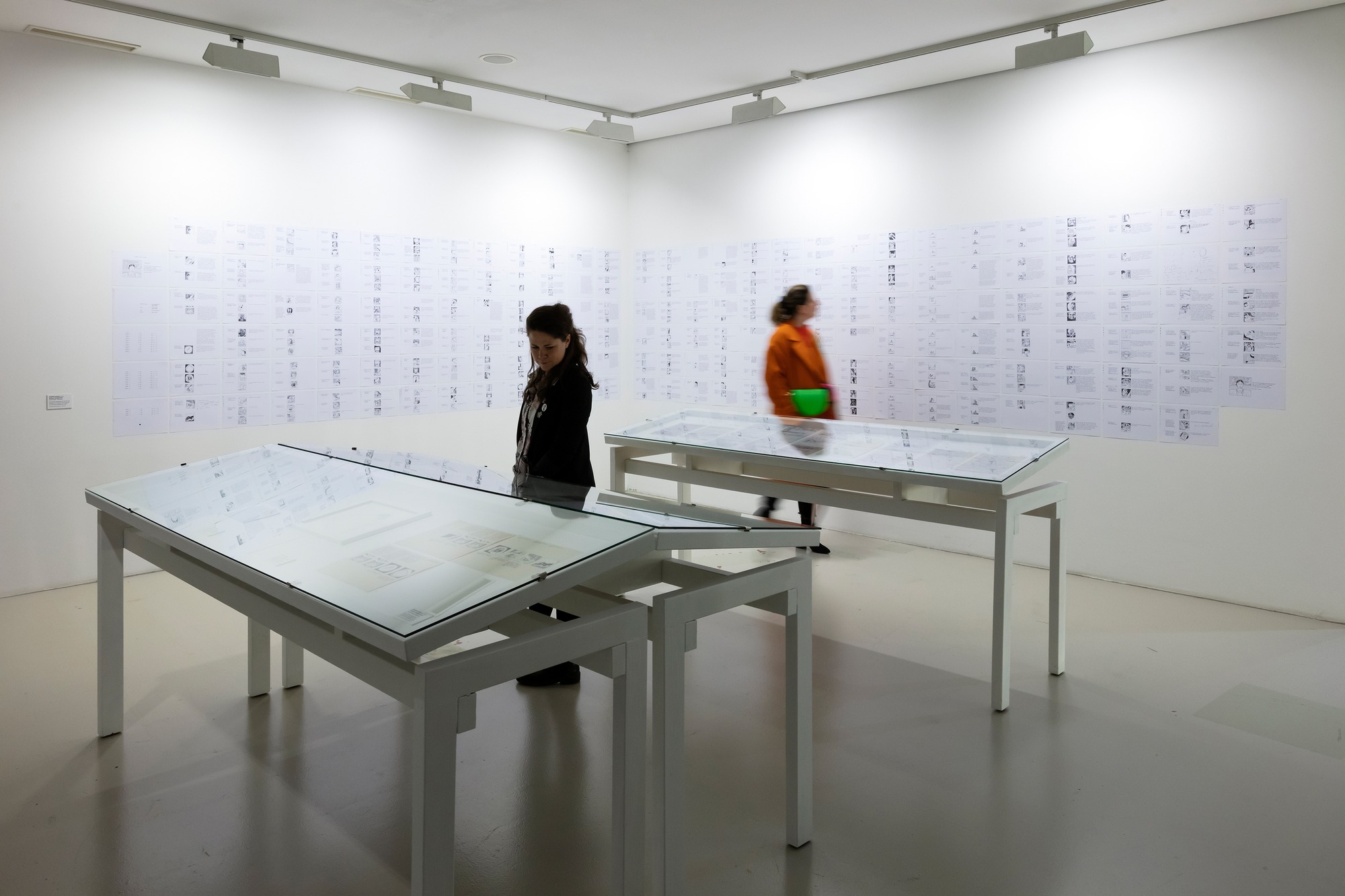
Installation view: Defiant Muses. Delphine Seyrig and the Feminist Video Collectives of 1970s and 1980s France, Kunsthalle Wien 2022, photo: Markus Wörgötter
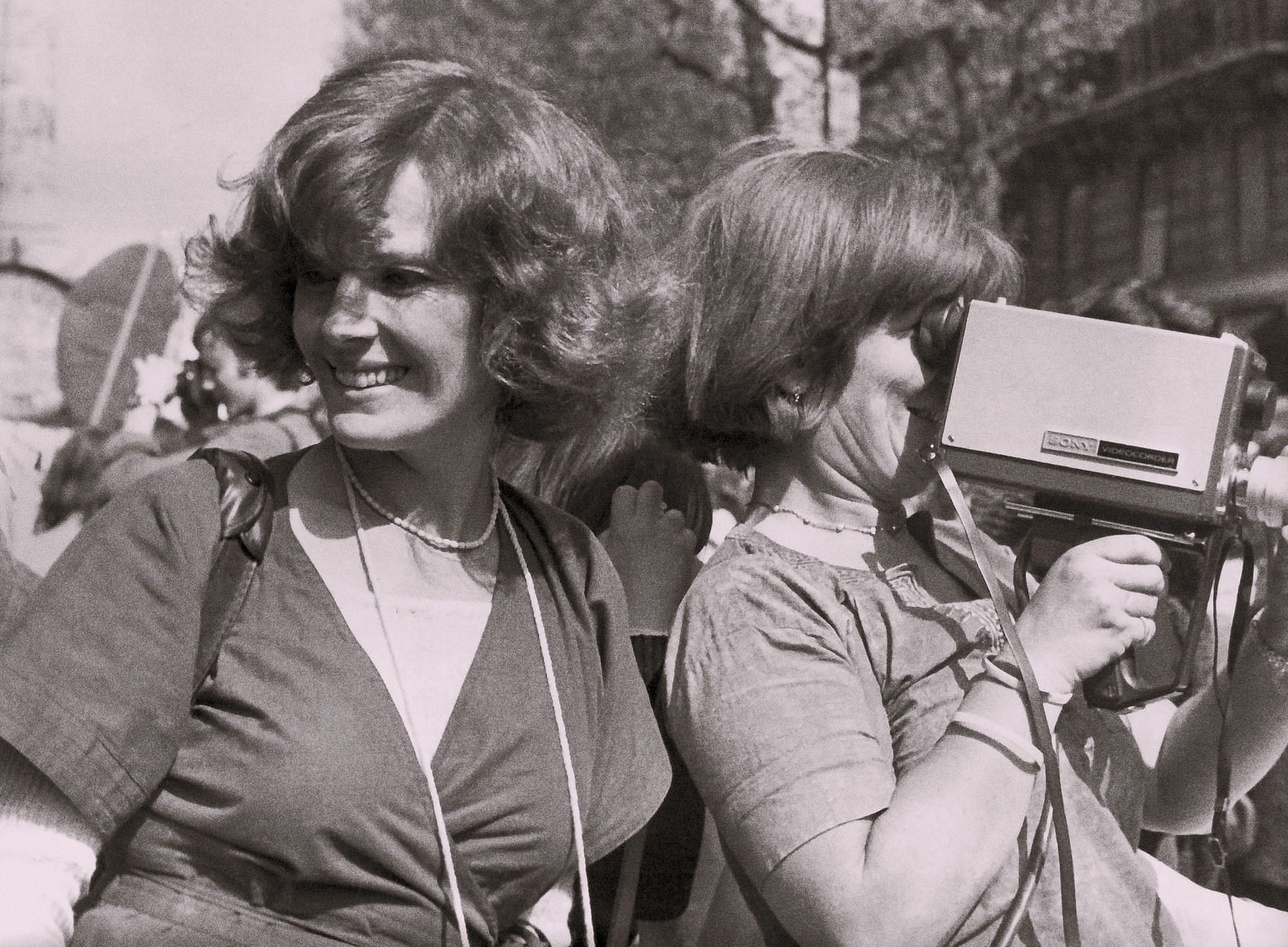
Micha Dell-Prane: Delphine Seyrig and Ioana Wieder holding a camera during a demonstration, 1976, courtesy Centre audiovisuel Simone de Beauvoir, © Micha Dell-Prane
Artists: Fani Adam • Etel Adnan • Florence Assouline • Claire Atherton • Ti-Grace Atkinson • Mary Barnes • Cathy Bernheim • Danièle Bordes • Aloïse Corbaz • Francoise Dasques • Micha Dell-Prane • Catherine Deudon • Marguerite Duras • Éditions des Femmes • Anne Faisandier • Claire Goriot • Henriette Grindat • Ellsworth Kelly • Erica
Lennard • Guy Le Querrec • Les Insoumuses • Babette Mangolte • Rosine Nusimovici • Ulrike Ottinger • Brigitte Pougeoise • Michèle Richer • Nadja Ringart • Yvette Roudy • Carole Roussopoulos • Paul Roussopoulos • Carlos Santos • Abraham Ségal • Delphine Seyrig • Valerie Solanas • Vidéa • Ioana Wieder • …
curators: Nataša Petrešin-Bachelez and Giovanna Zapperi CURATORIAL ASSISTANTS: Aziza Harmel and Julia Hartmann display: Tatiana Tarragó Van Wijk
EXHIBITION VENUE: kunsthalle wien museumsquartier
An exhibition organized by Museo Nacional Centro de Arte Reina Sofía
Madrid in collaboration with kunsthalle wien, Württembergischer Kunstverein Stuttgart, and Centre audiovisuel Simone de Beauvoir Paris.
Defiant Muses. Delphine Seyrig and the Feminist Video Collectives of 1970s and 1980s France focuses on the intersection between the histories of cinema, video, and feminism: the exhibition sheds light on a network of creators and political figures around the actress, videomaker, and activist Delphine Seyrig to sketch a history of feminism as media history.
Delphine Seyrig (1932–1990) is best known for the roles she played in French auteur cinema, most notably in Alain Resnais’ L’année dernière à Marienbad [Last Year at Marienbad] (1961), where she became the symbol of an idealized and sophisticated femininity. But “acting” was not merely a profession for Seyrig: during the 1970s, she became engaged in various collaborations within the framework of the feminist movement. At the same time, working with women filmmakers such as Chantal Akerman, Marguerite Duras or Ulrike Ottinger allowed her to explore a variety of female roles and to undo her own image as a diva.
Around 1975, together with activist video maker Carole Roussopoulos and translator Ioana Wieder, she produced a series of videos under the collective name Les Insoumuses (Defiant Muses). In their tapes, such as Sois belle et tais-toi! [Be Pretty and Shut Up!] (1976), SCUM Manifesto (1976), and Maso et Miso vont en bateau [Maso and Miso go boating] (1976), video became an emancipatory tool and an agent of political activism. In 1982, the three women established the Centre audiovisuel Simone de Beauvoir in Paris, thus providing an unprecedented audiovisual archive of the feminist struggles of the time, in and beyond France, which include the fight for legal abortion, against torture and the Vietnam War, for the rights of sex workers and political prisoners, and the involvement in the anti-psychiatry movement.
Focusing on the emergence of video collectives in the 1970s, the exhibition proposes to reconsider the history of the feminist movement in France through a set of media practices and looks at a network of creative alliances that emerged in a time of political turmoil. Seyrig as well as actress and friend Jane Fonda, cinematographer and filmmaker Babette Mangolte, poet and painter Etel Adnan, artist, author and activist Kate Millett, or writer and philosopher Simone de Beauvoir appear as knitting nodes of a wider, plural, transnational fabric. Videos, artworks, photographs, archival documents, and films are associated within sections that convey the multiple political concerns that the feminist movement was raising at this precise historical moment, which resonate with a set of problems concerning art and politics today, as feminists keep on building alliances, rise against the film industry’s structural sexism, and challenge normative gender roles. Seyrig’s troubled positions in-between aesthetics (cinema, video) and work (profession, industry) are marked by a continuum between the actress and the activist thus reminding of the ongoing significance of the 1970s feminist slogan: “the personal is political.”
Detailed information on the different sections of the exhibition as well as an introduction by the curators can be found in the comprehensive exhibition guide.
Defiant Muses: Delphine Seyrig and the Feminist Video Collectives of 1970s and 1980s France was organized by Museo Nacional Centro de Arte Reina Sofía Madrid and Centre audiovisuel Simone de Beauvoir Paris. The exhibition will move to Württembergischer Kunstverein Stuttgart, where it will be on view in spring 2023.
The exhibition’s first iteration was shown at LaM (Lille Métropole Musée d‘art moderne, d‘art contemporain et d‘art brut).
The exhibition is funded by the Kulturstiftung des Bundes (German Federal Cultural Foundation) and by the Beauftragte der Bundesregierung für Kultur und Medien (Federal Government Commissioner for Culture and Media).
Curators‘ short biographies
Nataša Petrešin-Bachelez is an independent curator, editor and writer. She has curated numerous exhibitions worldwide such as Contour Biennale 9: Coltan as Cotton (2019, Mechelen); Let’s Talk about the Weather (2016–2018, Beirut and Guangzhou); Resilience. U3Triennial of Contemporary Art (2013, Ljubljana). She was chief editor of L’Internationale Online and of the Manifesta Journal and currently holds the position at Versopolis Review. Petrešin-Bachelez is cofounder of the Initiative for practices and visions of radical care and, in 2021, got appointed as the Head of Cultural Programme at Cité Internationale Des Arts Paris.
Giovanna Zapperi is Professor of contemporary art history at the University of Geneva. She is the author of three books: L’artiste est une femme. La modernité de Marcel Duchamp [The Artist is a Woman. Marcel Duchamp’s Modernity], Presses Universitaires de France 2012; with Alessandra Gribaldo, Lo schermo del potere. Femminismo e regime della visibilità [The Screen of Power. Feminism and the Regime of Visibility], Ombre Corte 2012, and Carla Lonzi. Un’arte della vita [Carla Lonzi: An Art of Life], DeriveApprodi 2017. Together with Francesco
Ventrella, she has recently edited the book Art and Feminism in Postwar Italy. The Legacy of Carla Lonzi (London, Bloomsbury 2021).
Together, Nataša Petrešin-Bachelez and Giovanna Zapperi have curated the previous two iterations of the exhibition Defiant Muses. Delphine Seyrig and the Feminist Video Collectives of 1970s and 1980s France at LaM – Lille Metropole (2019) and at Museo Nacional Centro de Arte Reina Sofía, Madrid (2019/2020).
Lennard • Guy Le Querrec • Les Insoumuses • Babette Mangolte • Rosine Nusimovici • Ulrike Ottinger • Brigitte Pougeoise • Michèle Richer • Nadja Ringart • Yvette Roudy • Carole Roussopoulos • Paul Roussopoulos • Carlos Santos • Abraham Ségal • Delphine Seyrig • Valerie Solanas • Vidéa • Ioana Wieder • …
curators: Nataša Petrešin-Bachelez and Giovanna Zapperi CURATORIAL ASSISTANTS: Aziza Harmel and Julia Hartmann display: Tatiana Tarragó Van Wijk
EXHIBITION VENUE: kunsthalle wien museumsquartier
An exhibition organized by Museo Nacional Centro de Arte Reina Sofía
Madrid in collaboration with kunsthalle wien, Württembergischer Kunstverein Stuttgart, and Centre audiovisuel Simone de Beauvoir Paris.
Defiant Muses. Delphine Seyrig and the Feminist Video Collectives of 1970s and 1980s France focuses on the intersection between the histories of cinema, video, and feminism: the exhibition sheds light on a network of creators and political figures around the actress, videomaker, and activist Delphine Seyrig to sketch a history of feminism as media history.
Delphine Seyrig (1932–1990) is best known for the roles she played in French auteur cinema, most notably in Alain Resnais’ L’année dernière à Marienbad [Last Year at Marienbad] (1961), where she became the symbol of an idealized and sophisticated femininity. But “acting” was not merely a profession for Seyrig: during the 1970s, she became engaged in various collaborations within the framework of the feminist movement. At the same time, working with women filmmakers such as Chantal Akerman, Marguerite Duras or Ulrike Ottinger allowed her to explore a variety of female roles and to undo her own image as a diva.
Around 1975, together with activist video maker Carole Roussopoulos and translator Ioana Wieder, she produced a series of videos under the collective name Les Insoumuses (Defiant Muses). In their tapes, such as Sois belle et tais-toi! [Be Pretty and Shut Up!] (1976), SCUM Manifesto (1976), and Maso et Miso vont en bateau [Maso and Miso go boating] (1976), video became an emancipatory tool and an agent of political activism. In 1982, the three women established the Centre audiovisuel Simone de Beauvoir in Paris, thus providing an unprecedented audiovisual archive of the feminist struggles of the time, in and beyond France, which include the fight for legal abortion, against torture and the Vietnam War, for the rights of sex workers and political prisoners, and the involvement in the anti-psychiatry movement.
Focusing on the emergence of video collectives in the 1970s, the exhibition proposes to reconsider the history of the feminist movement in France through a set of media practices and looks at a network of creative alliances that emerged in a time of political turmoil. Seyrig as well as actress and friend Jane Fonda, cinematographer and filmmaker Babette Mangolte, poet and painter Etel Adnan, artist, author and activist Kate Millett, or writer and philosopher Simone de Beauvoir appear as knitting nodes of a wider, plural, transnational fabric. Videos, artworks, photographs, archival documents, and films are associated within sections that convey the multiple political concerns that the feminist movement was raising at this precise historical moment, which resonate with a set of problems concerning art and politics today, as feminists keep on building alliances, rise against the film industry’s structural sexism, and challenge normative gender roles. Seyrig’s troubled positions in-between aesthetics (cinema, video) and work (profession, industry) are marked by a continuum between the actress and the activist thus reminding of the ongoing significance of the 1970s feminist slogan: “the personal is political.”
Detailed information on the different sections of the exhibition as well as an introduction by the curators can be found in the comprehensive exhibition guide.
Defiant Muses: Delphine Seyrig and the Feminist Video Collectives of 1970s and 1980s France was organized by Museo Nacional Centro de Arte Reina Sofía Madrid and Centre audiovisuel Simone de Beauvoir Paris. The exhibition will move to Württembergischer Kunstverein Stuttgart, where it will be on view in spring 2023.
The exhibition’s first iteration was shown at LaM (Lille Métropole Musée d‘art moderne, d‘art contemporain et d‘art brut).
The exhibition is funded by the Kulturstiftung des Bundes (German Federal Cultural Foundation) and by the Beauftragte der Bundesregierung für Kultur und Medien (Federal Government Commissioner for Culture and Media).
Curators‘ short biographies
Nataša Petrešin-Bachelez is an independent curator, editor and writer. She has curated numerous exhibitions worldwide such as Contour Biennale 9: Coltan as Cotton (2019, Mechelen); Let’s Talk about the Weather (2016–2018, Beirut and Guangzhou); Resilience. U3Triennial of Contemporary Art (2013, Ljubljana). She was chief editor of L’Internationale Online and of the Manifesta Journal and currently holds the position at Versopolis Review. Petrešin-Bachelez is cofounder of the Initiative for practices and visions of radical care and, in 2021, got appointed as the Head of Cultural Programme at Cité Internationale Des Arts Paris.
Giovanna Zapperi is Professor of contemporary art history at the University of Geneva. She is the author of three books: L’artiste est une femme. La modernité de Marcel Duchamp [The Artist is a Woman. Marcel Duchamp’s Modernity], Presses Universitaires de France 2012; with Alessandra Gribaldo, Lo schermo del potere. Femminismo e regime della visibilità [The Screen of Power. Feminism and the Regime of Visibility], Ombre Corte 2012, and Carla Lonzi. Un’arte della vita [Carla Lonzi: An Art of Life], DeriveApprodi 2017. Together with Francesco
Ventrella, she has recently edited the book Art and Feminism in Postwar Italy. The Legacy of Carla Lonzi (London, Bloomsbury 2021).
Together, Nataša Petrešin-Bachelez and Giovanna Zapperi have curated the previous two iterations of the exhibition Defiant Muses. Delphine Seyrig and the Feminist Video Collectives of 1970s and 1980s France at LaM – Lille Metropole (2019) and at Museo Nacional Centro de Arte Reina Sofía, Madrid (2019/2020).
